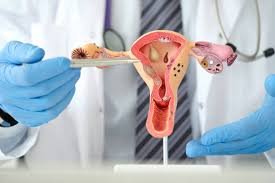Finding the Right Gynecologist Near You: A Comprehensive Guide:
Finding a gynecologist near me who meets your healthcare needs and preferences is crucial for women’s reproductive and overall health. Whether you’re due for a routine check-up, seeking pregnancy care, or addressing specific gynecological concerns, this guide will provide you with insights, practical advice, and answers to frequently asked questions (FAQs) to help you navigate the process of finding a gynecologist near you.

Understanding Gynecological Care:
Gynecologists specialize in women’s reproductive health, offering a range of services including:
- Routine Exams: Annual pelvic exams, Pap smears, and screenings for sexually transmitted infections (STIs).
- Pregnancy Care: Monitoring pregnancies, providing prenatal care, and assisting with childbirth.
- Contraception: Counseling on birth control methods and management of contraceptive needs.
- Treatment of Gynecological Issues: Management of menstrual disorders, pelvic pain, fibroids, and menopause symptoms.
- Specialized Care: Services for infertility, gynecological cancers, and surgical interventions.
FAQs on Finding a Gynecologist Near Me:
1. How can I find a gynecologist near me?
Finding a gynecologist involves:
- Research: Ask for recommendations from friends, family, or your primary care physician.
- Online Search: Use search engines or healthcare provider directories to locate gynecologists in your area.
- Health Insurance: Check if the gynecologist accepts your health insurance plan for coverage.
2. What factors should I consider when choosing a gynecologist?
Consider:
- Credentials: Verify the gynecologist’s board certification and years of experience.
- Specialization: Ensure they specialize in areas relevant to your needs, such as obstetrics, infertility, or menopause.
- Communication Style: Choose a provider who listens to your concerns, explains medical information clearly, and respects your preferences.
- Location and Accessibility: Consider the office location, availability of parking, and ease of scheduling appointments.
3. What questions should I ask during my first visit to a gynecologist?
Ask about:
- Health History: Provide details about your medical history, including surgeries, medications, allergies, and family medical history.
- Annual Exams: Discuss the frequency of routine exams and screenings recommended for your age and health status.
- Contraception Options: Inquire about birth control methods and their suitability based on your health and lifestyle.
- Pregnancy and Childbirth: If applicable, discuss prenatal care, delivery options, and postpartum support.

4. How often should I see my gynecologist for routine check-ups?
Routine visits depend on factors such as your age, health status, and specific healthcare needs:
- Annual Exams: Recommended for most women to assess overall reproductive health, screenings, and contraceptive needs.
- Pregnancy Care: Regular visits during pregnancy to monitor fetal development and maternal health.
- Follow-up Care: After childbirth, treatment for gynecological conditions, or menopause management as recommended by your gynecologist.
5. What are signs that I should switch gynecologists?
Consider switching if:
- Communication Issues: You feel uncomfortable discussing health concerns or receive inadequate explanations.
- Lack of Trust: You doubt their medical judgment or recommendations.
- Long Wait Times: Consistently experience long wait times or difficulty scheduling appointments.
- Moving or Change in Needs: Relocating or changes in healthcare needs may necessitate finding a new gynecologist.
6. How can I prepare for my first visit to a gynecologist?
Prepare by:
- Medical History: Compile a list of past surgeries, medications, allergies, and family medical history.
- Questions: Write down any questions or concerns you want to discuss during the appointment.
- Insurance Information: Bring your insurance card and any necessary paperwork for billing purposes.
- Comfort: Wear comfortable clothing and be prepared for routine tests or exams if scheduled.
7. What should I do if I have an urgent gynecological issue?
For urgent issues:
- Contact Your Gynecologist: Call their office for advice or to schedule an urgent appointment.
- Emergency Care: If it’s a serious concern, visit the nearest emergency room or urgent care facility for immediate medical attention.

Conclusion:
Choosing the right gynecologist near me is essential for maintaining optimal reproductive and overall health throughout your life. By conducting thorough research, asking relevant questions, and evaluating compatibility, you can find a healthcare provider who meets your needs and ensures you receive personalized care. Prioritize regular check-ups, communicate openly with your gynecologist, and seek prompt medical attention for any concerns to empower yourself in managing your health effectively. Your well-being deserves expert care, so take proactive steps to find the best gynecologist near you today.




